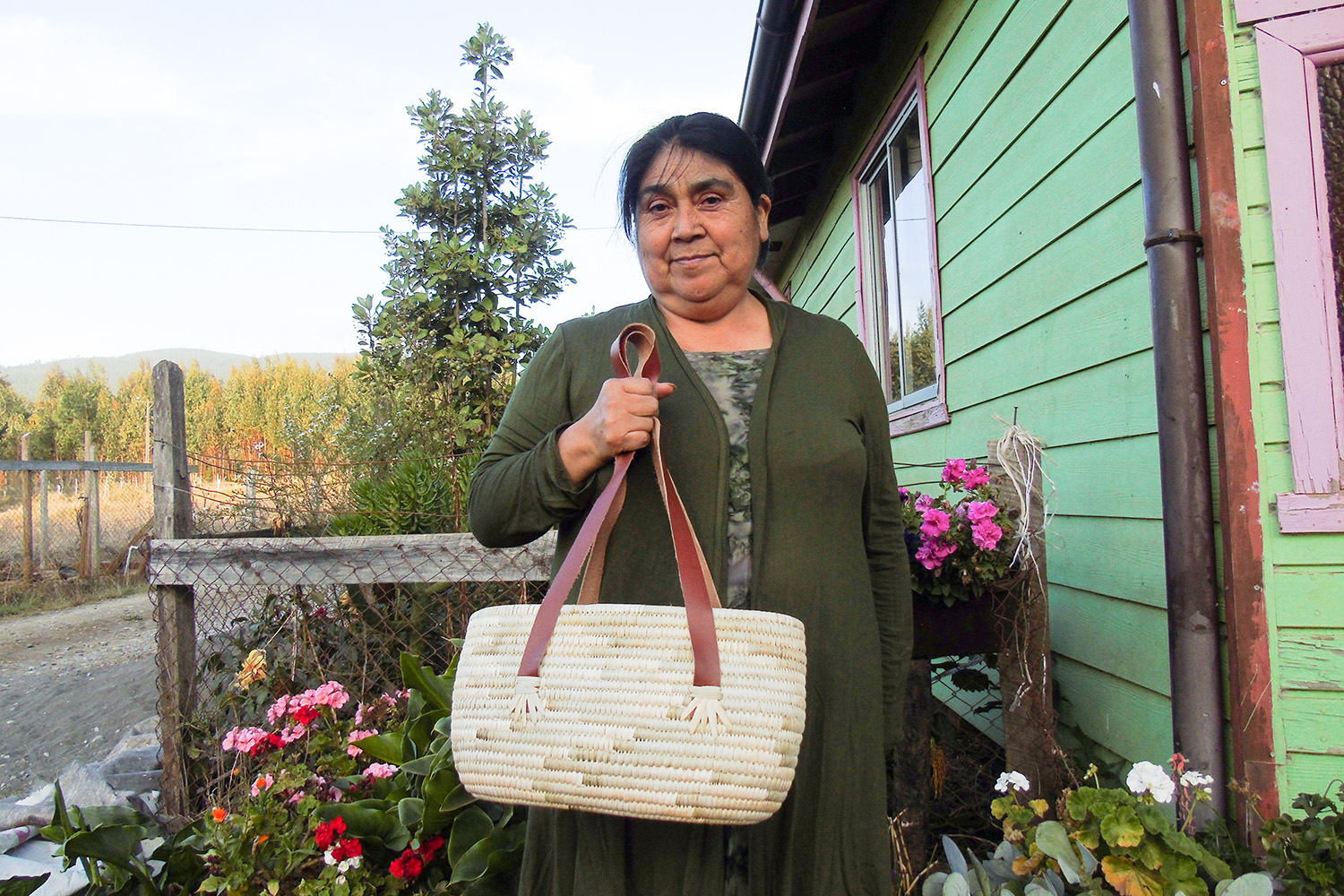
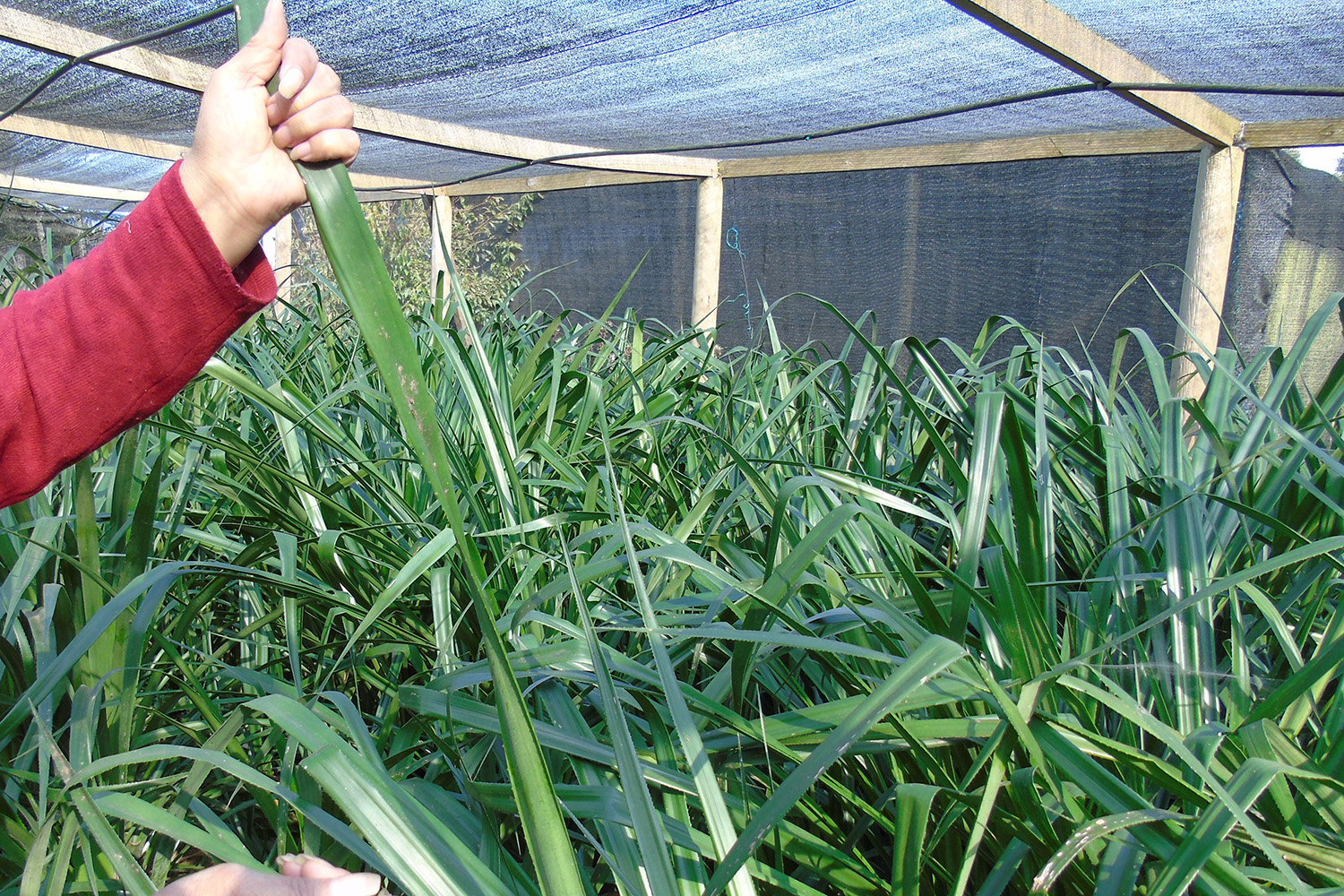
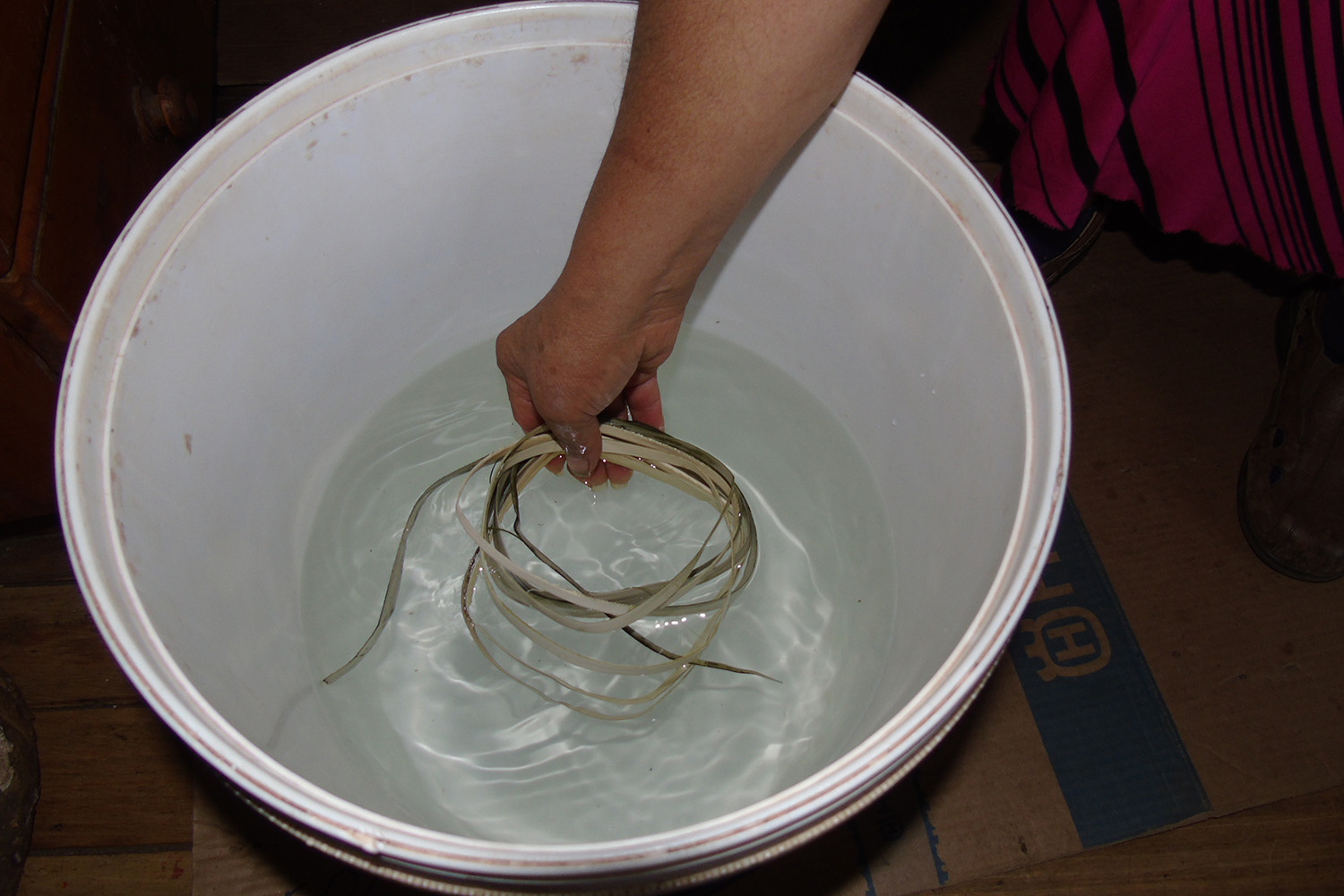
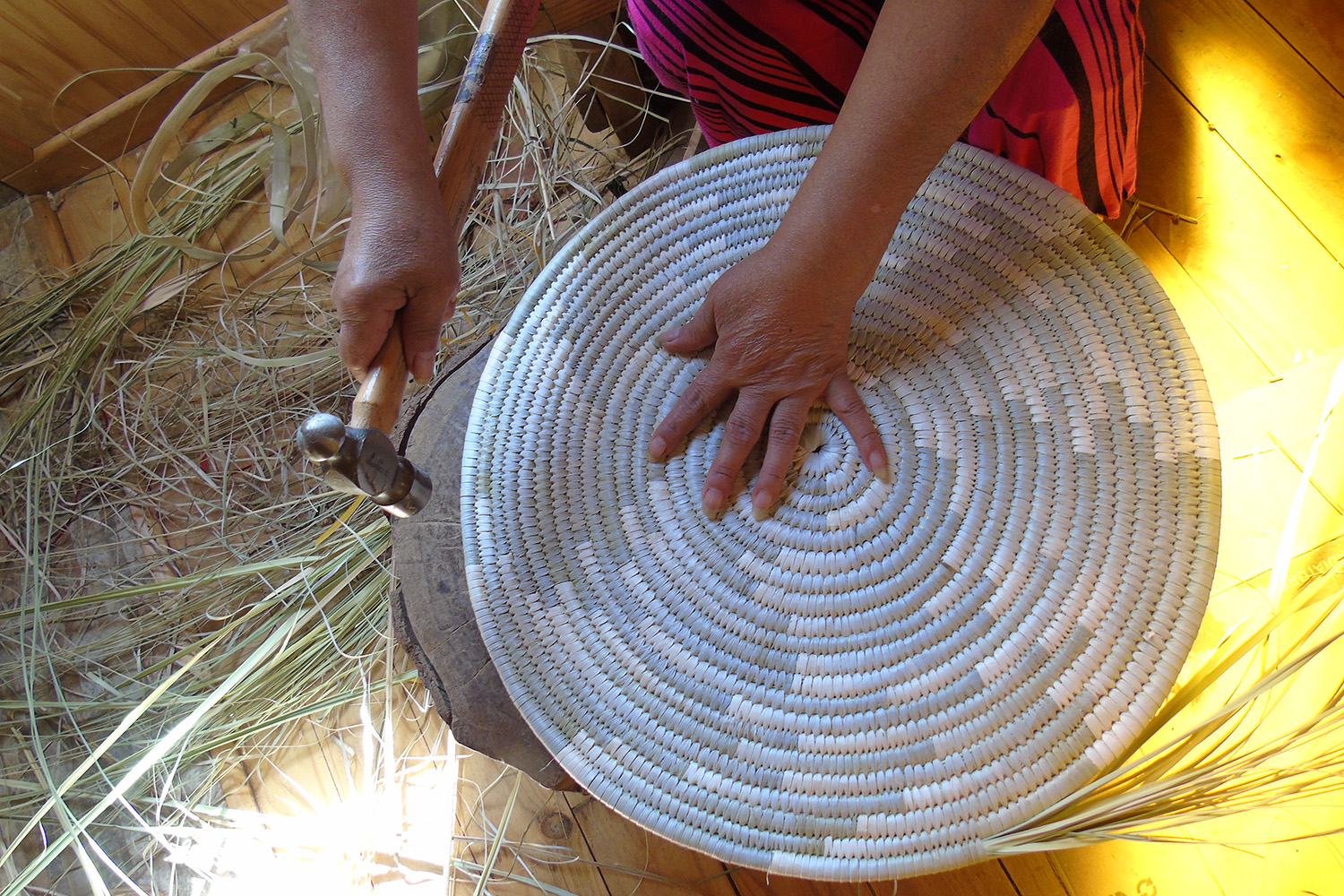
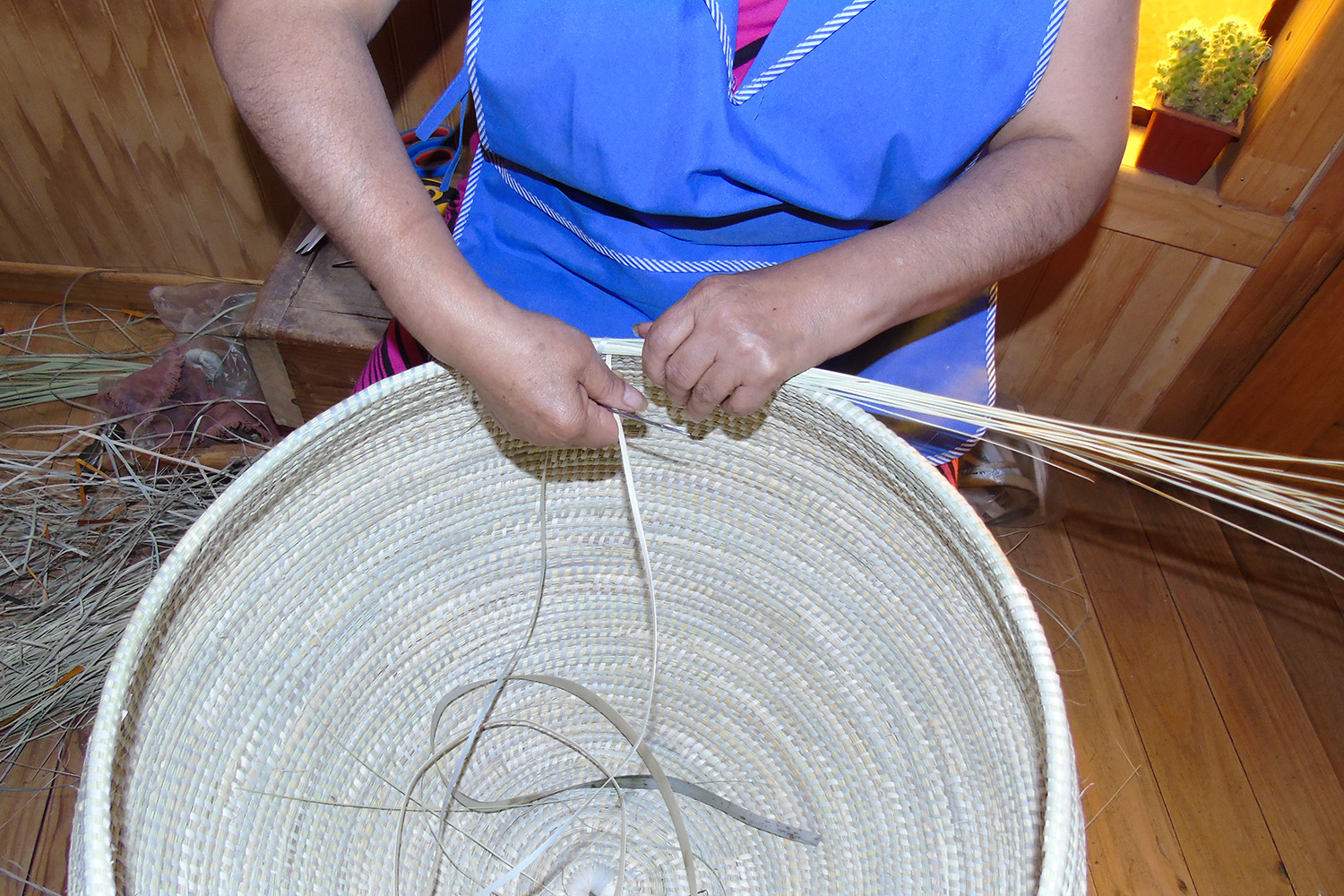





Juana Del Carmen Maribur Paloma learned her craft thanks to the legacy of her ancestors. Her maternal family and her older siblings taught her from when she was a child. She observed intently how they carried out each step of the process to make the final pieces. "One of my main motivations was to start spreading Mapuche handicrafts," Juana says. "In previous times, we did not see many artisans in our area or they were not as well known as they are now. The Internet helped us a lot to get out there." Juana applies various techniques of creation such as the picado stitch, embarrilado, open stitch and openwork stitch. She defines what she does as culture and tradition. "I like everything I do, knitting, representing Mapuche craftsmanship and keeping this ancestral technique alive," she says.
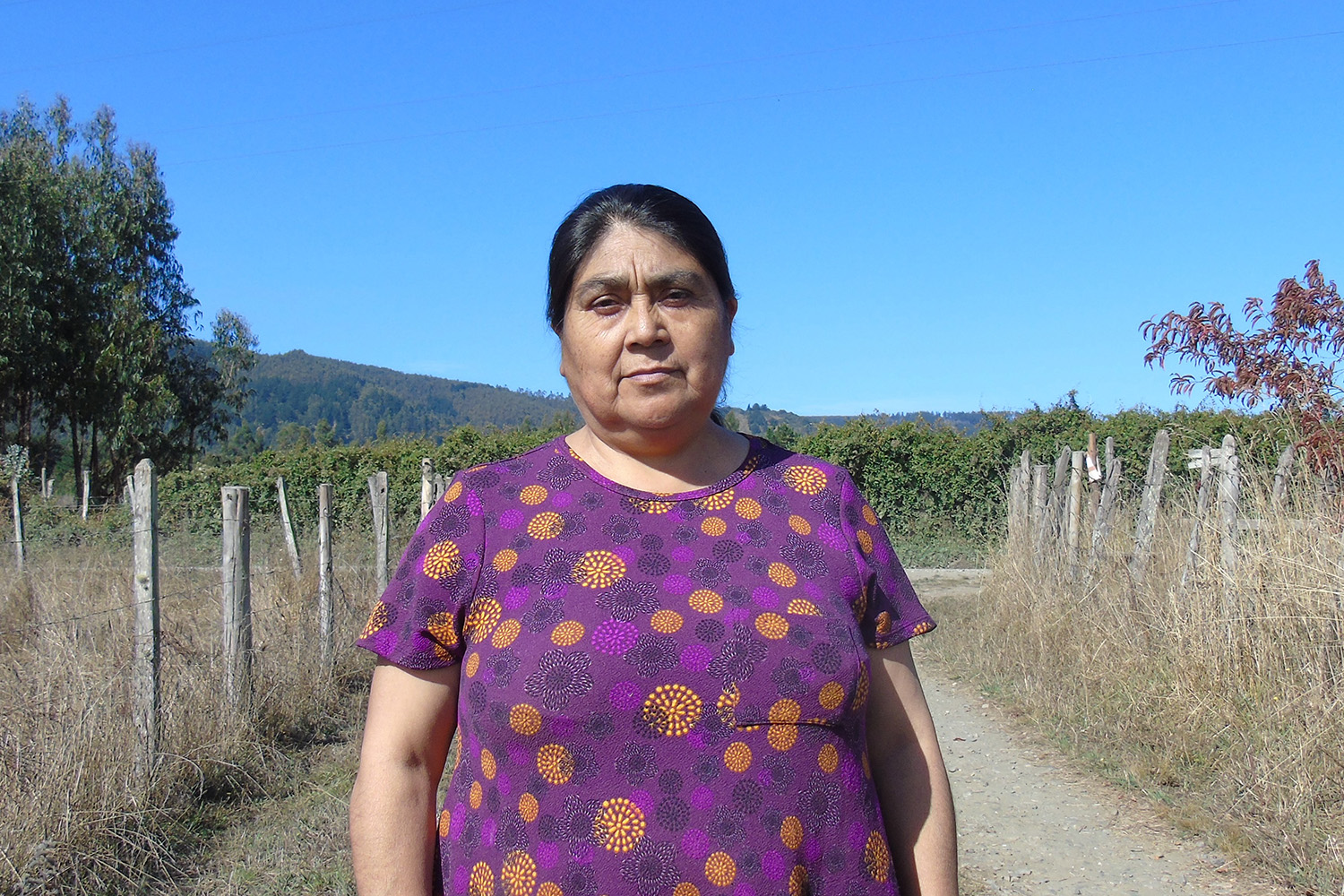
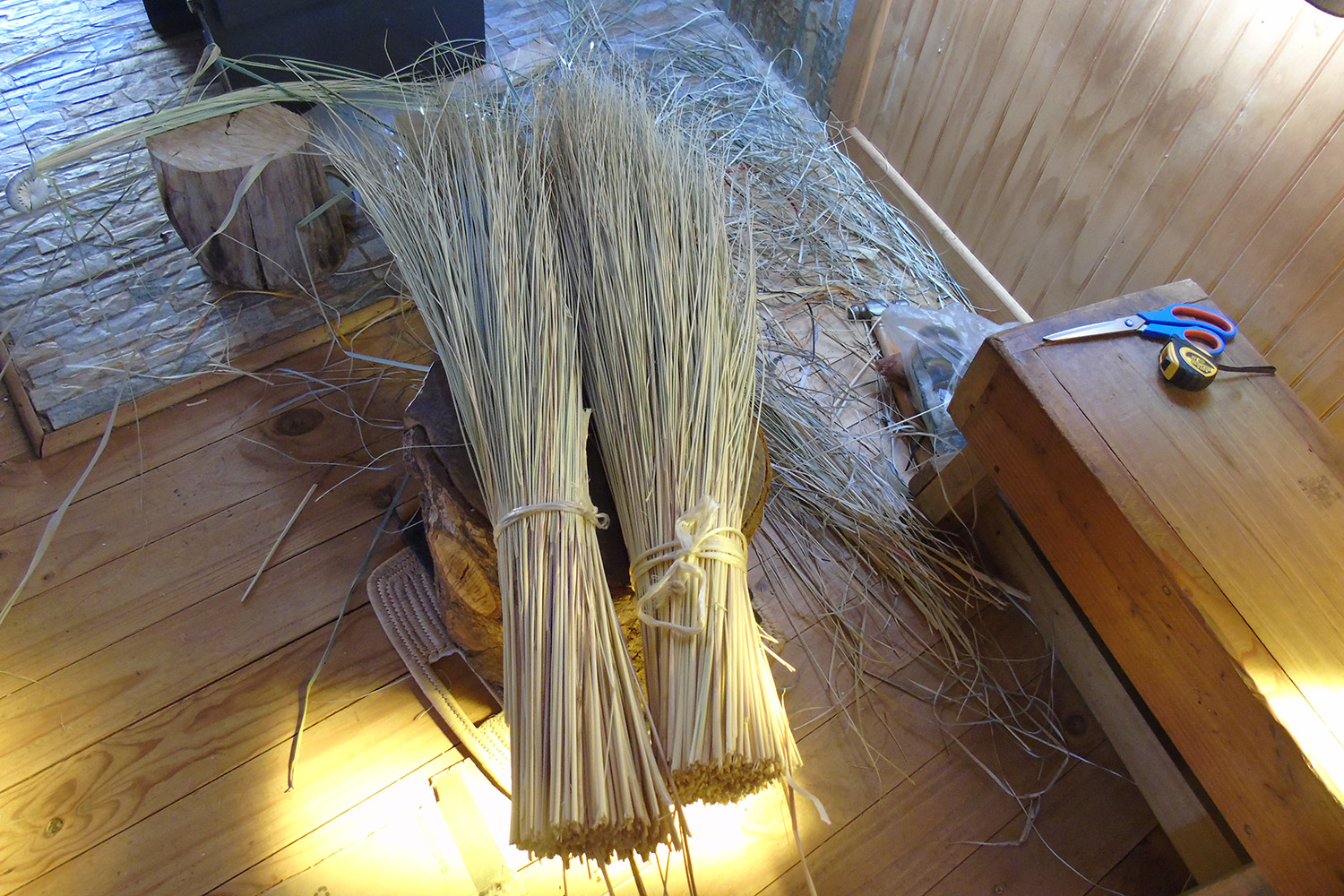
Juana Del Carmen Maribur Paloma